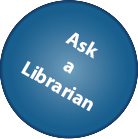Tech Tip: Check Your Engine
TECH TIP CHECK YOUR ENGINE
1 THE PROBLEM
You understand the basics of online research but don’t know how to apply it to an academic setting.
2 THE FIX
Learn what research passes scholarly muster: peer-reviewed academic journals (e.g., Harvard Business Review), government Web sites (U.S. ones usually end in .gov), or newspaper Web sites (e.g., New York Times, Washington Post).
3 HOW TO DO IT
Unlike the examples above, much of the information that you find online isn’t objective or factual; it’s a digital free-for-all out there. When digging for academic research, you need to be fanatically picky and filter out all the garbage. That’s called critical thinking, and it’s what college is all about.
Your college library offers free access to a wealth of academic databases, LexisNexis, e-journals, and so on. If you have questions about how to use them (and about what kinds of materials qualify as academic research in general), make an appointment with a reference librarian. In 30 minutes you’ll probably be smarter than anyone else in your class. Go online to http://libguides.bgsu.edu/library_basics to visit the library at Bowling Green State University and find helpful “getting started” guides to online research.

Hone your online research skills. Make sure that you understand Boolean operators. The most common Boolean operators are the words AND, OR, and NOT, and how you use them affects your search results.
Keywords separated by the word AND yield results that contain both of the required words, in any order. According to the Bowling Green Web site, “A search for rock AND roll will locate all records containing both the word rock and the word roll. It will locate items about rock and roll music. It might also locate records that contain both words in a different context.”
Keywords separated by the word OR yield results that contain one word or the other. The Bowling Green Web site notes, “A search for rock OR roll will locate all records containing either the word rock or the word roll—not necessarily both. It will retrieve items about bakery rolls, tumbling, rocks, music, gemstones, etc.”
Keywords separated by the word NOT yield results that feature the first word and exclude the second. The Bowling Green Web site states, “A search for rock NOT roll will locate records containing the word rock but NOT the word roll. It will retrieve items about rocks, gemstones, diamonds, etc.”*
Other tips: Frame keywords with asterisks to yield results that include the exact phrase within the asterisks. If you get too few hits, omit a search term. Add an asterisk to a keyword for a wildcard search that yields results that include any word that starts with the keyword.
GOOD TO KNOW
Learn the quirks of the databases or search engines you use often. Whether you use AltaVista, Bing, Google, or Google Scholar, learn tricks to refine your search. Some engines yield better results from Boolean operators (e.g., “politicians AND lobbyists”); others are more attuned to natural language searches (e.g., “ethics in politics” or “gifts to politicians”).
PERSONAL BEST
Avoid Internet plagiarism. You cannot cut and paste whole sentences from the Internet into your essays. Instructors can easily catch you, and the penalties are stiff.
KEY TIPS
Don’t procrastinate. If you leave a big paper until the last minute, you’ll be more tempted to cut and paste and less scrupulous about footnotes.
Avoid unintentional cheating. Whenever you copy online research into your notes, be sure to add a URL in brackets at the end. While you’re at it, place quotation marks around all cited materials or highlight them in a bright color. It’s surprisingly easy to forget which words are your own and which words came from another author.
When in doubt, footnote. Paraphrasing anything off the Internet or from any other source and using it without attribution is cheating. Most colleges have a zero-tolerance policy on the subject.